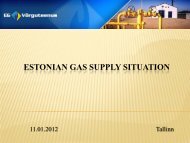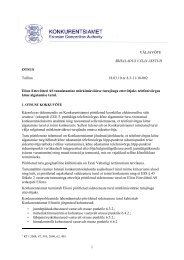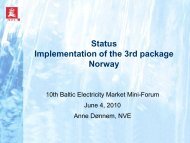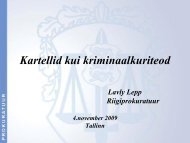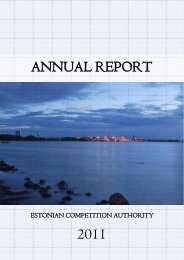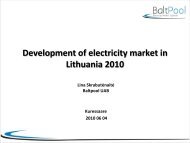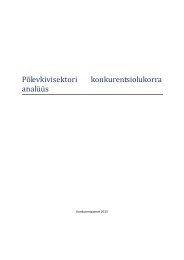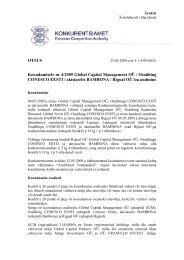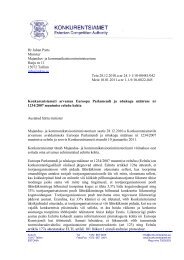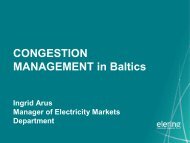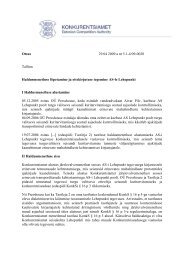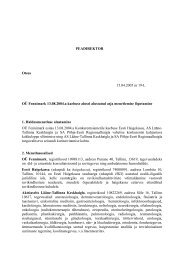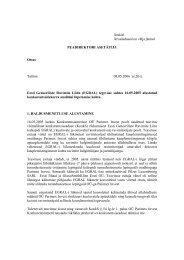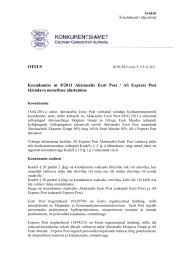ANNUAL REPORT 2010 - Konkurentsiamet
ANNUAL REPORT 2010 - Konkurentsiamet
ANNUAL REPORT 2010 - Konkurentsiamet
You also want an ePaper? Increase the reach of your titles
YUMPU automatically turns print PDFs into web optimized ePapers that Google loves.
choices. Furthermore, the updating of the Competition Act is planned for the year 2011, in<br />
which the competition division has high expectations. First and foremost, the reformation of<br />
the proceeding principles of the abuse of a dominant position is necessary in order to make<br />
the supervision more efficient. Currently it is based on the misdemeanour procedure in<br />
Estonia. This is a very exceptional method in global practice, which was initially meant<br />
rather for the simple and rapid proceeding of minor violations (such as driving without a<br />
seat belt). The proceeding of complex economic violations in a misdemeanour procedure is<br />
unnecessarily (not to say impossibly) complicated for several reasons and therefore also<br />
rather inefficient, compared to other countries. The competition division hopes that the year<br />
2011 will bring a positive development in this aspect, to facilitate the intensification of<br />
supervision in the future.<br />
Recommendation of the Competition Authority related to the issuing of<br />
line permits<br />
On 18.02.<strong>2010</strong> the Competition Authority submitted to the Ministry of Economic Affairs<br />
and Communications and on 22.04.<strong>2010</strong> to the Economic Commission of the Riigikogu<br />
its opinions of the competition restrictions found in the Public Transport Act. In the<br />
opinion of the Competition Authority there are no public interests that would justify the<br />
restriction of the appearance of new carriers to the market and an extension of the<br />
companies already operating on the market.<br />
In the last seven years the main aspect assessed upon granting permits for a long-distance<br />
regular service has been the issue of whether the line permit would interfere with the<br />
currently provided regular services in economic terms. In the opinion of the Competition<br />
Authority the provisions of the Public Transport Act § 41 (2)(2) constitute a very exceptional<br />
mechanism, which has not been specified in any other fields of business. In other fields<br />
usually no restrictions are set for the new operators, regardless of whether it interferes with<br />
the business of the existing active operators. The restriction included in the Public Transport<br />
Act limits business freedom and causes damage to competition as a public interest. Market<br />
concentration of some lines is very high, causing modest competition. However, according<br />
to the Constitution the business freedom may be restricted only if it is in a reasonable<br />
relationship with the objective. In this case the proportionality of restriction may not be<br />
ensured in the situation where the law grants to the administrative body a potentially<br />
unlimited right to refuse to grant a line permit, if the entry of a competitor would interfere<br />
23



